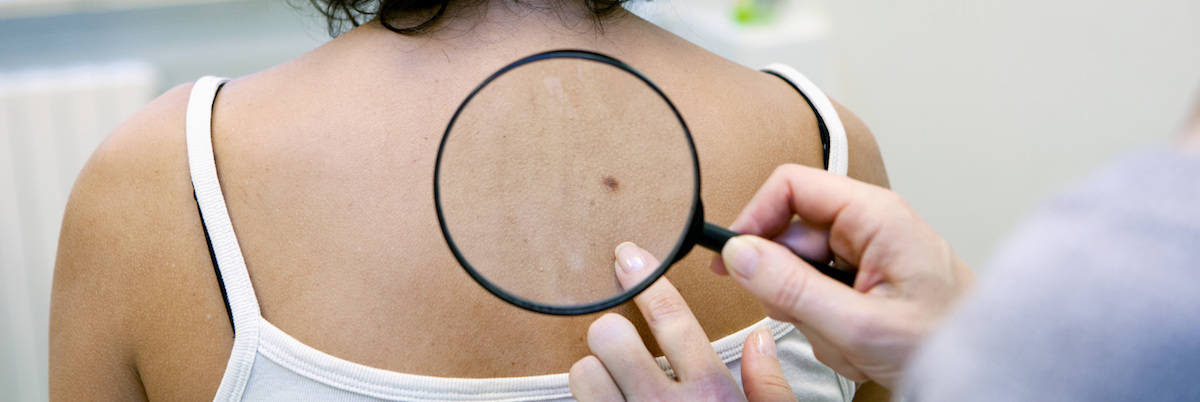
It’s summertime again and that means you are probably going to get more exposure to the sun than you normally would. Last month, we shared our tips for protecting your skin from the sun’s harmful UV rays and preventing skin cancer.
This month, we want to help you identify if you’re at a higher risk for developing skin cancer so you can take the right precautions to prevent it.
Who is at risk for skin cancer?
Overexposure to the sun can put anyone at risk for developing skin cancer, but some groups of people are naturally at a higher risk because of their family history, skin tone, complexion, or sun exposure as a child.
Light skin pigmentation
Regardless of skin color, anyone is susceptible to getting skin cancer with too much exposure to the sun. But people with lighter complexions are much more at risk because they have less melanin, or pigmentation, to protect them from the damaging effects of UV radiation. If you have light-colored eyes, sunburn or freckle easily, or have blond or red hair, you are much more likely to develop skin cancer than people with darker skin.
A complexion with moles
People who have abnormal moles or many moles covering their body are at an increased risk of skin cancer. Abnormal moles, which are generally larger than normal moles or look irregular, can become cancerous. If you have moles, you will need to watch them regularly for any changes in appearance or texture.
Excessive sun exposure
Repeated, unprotected exposure to natural or artificial UV radiation puts you at a much higher risk of developing skin cancer. This can include people who spend time in tanning beds or outdoors without protective sunscreen or clothing.
People who live in sunny climates or who live at higher altitudes are more likely to have skin cancer because they get more sun exposure than people who live in colder climates. Additionally, if you had multiple blistering sunburns as a child or teenager, you’re much more likely to develop skin cancer as an adult.
A family or personal history of skin cancer
If you have had skin cancer in the past, you are much more likely to develop it again, or if one of your siblings or parents has had skin cancer, you are at a higher risk of developing the disease yourself.
If you have one or more of the risk factors for skin cancer, schedule a consultation with your dermatologist to talk about preventative skin care and schedule regular exams.
Disclaimer: This blog provides general information and discussion about medical, cosmetic, mohs, and surgical dermatology. The words and other content provided in this blog, and in any linked materials, are not intended and should not be construed as medical advice. If the reader or any other person has a medical concern, he or she should consult with an appropriately-licensed dermatologist or other health care worker.
